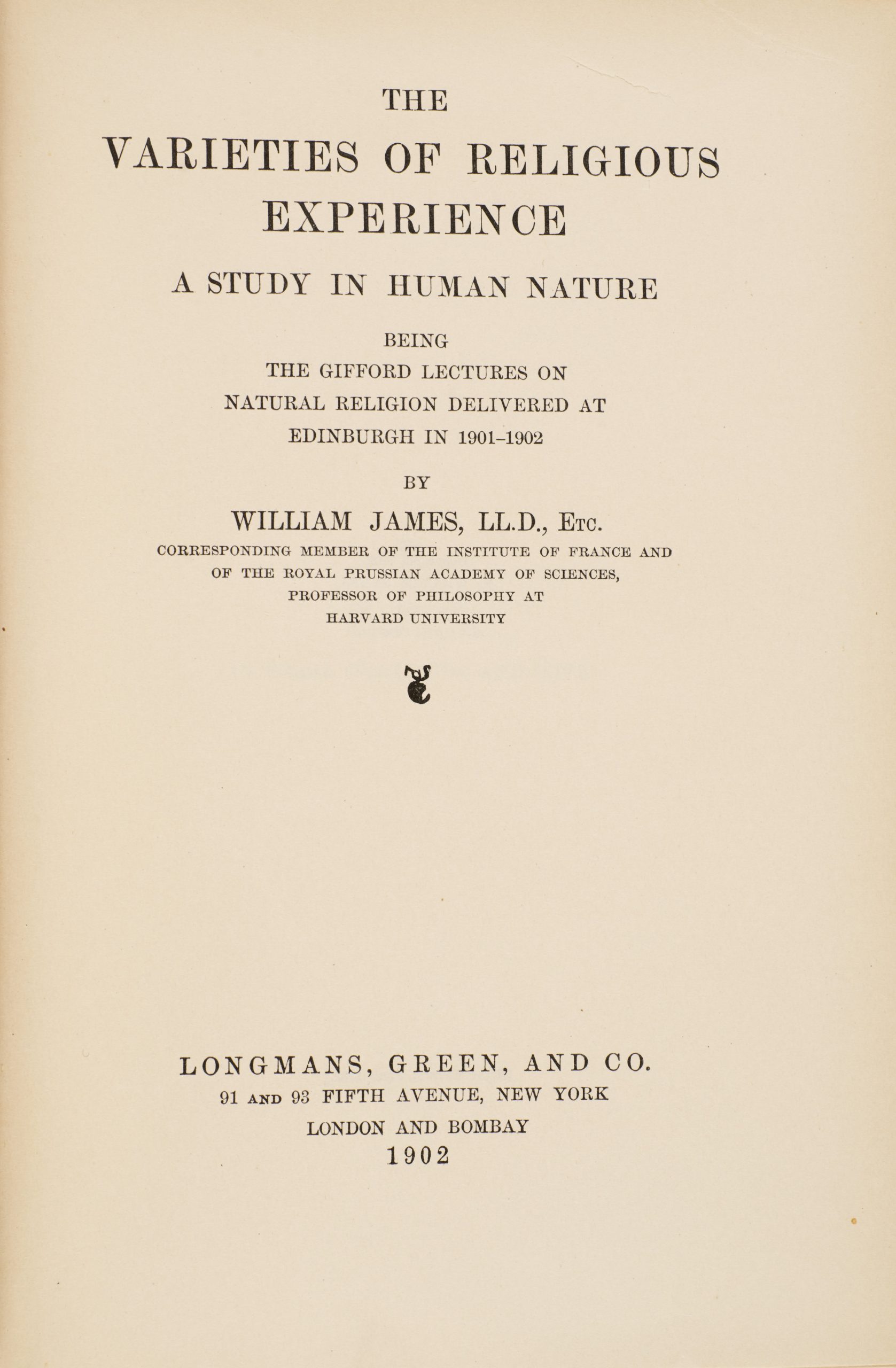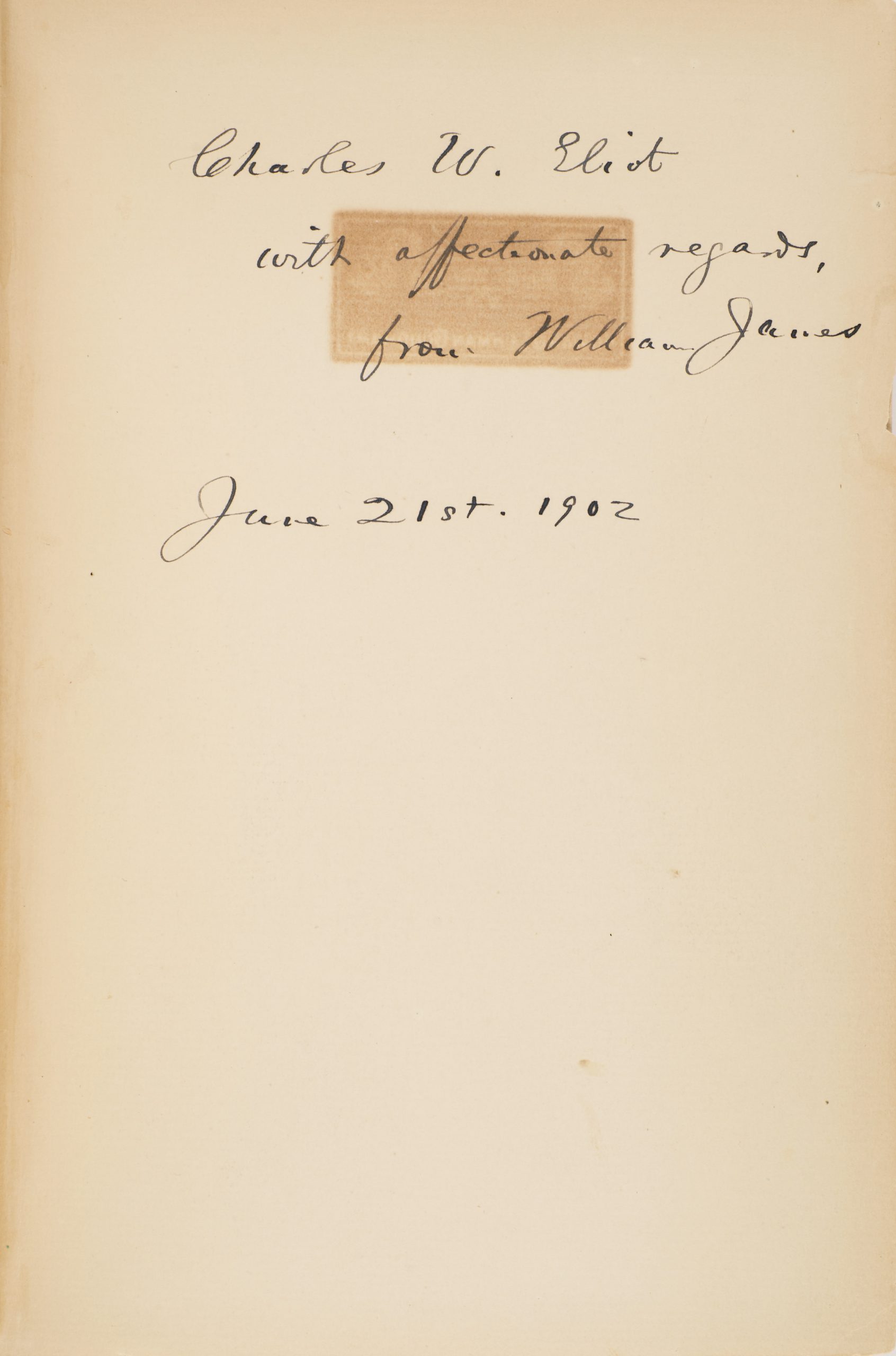a landmark of American philosophy
JAMES, WILLIAM. The Varieties of Religious Experience
New York and London: Longmans, Green, 1902
Original blue-gray cloth, paper spine label. Hinges tender, light wear, offsetting from bookplate affecting inscription. Half morocco case.
FIRST EDITION. Presentation copy inscribed by James to the president of Harvard: “Charles W. Eliot with affectionate regards, from William James June 21st. 1902.” Eliot, who served as president for forty years, had recruited James to join the Harvard faculty in 1872, and the philosopher remained there until 1907.
The Varieties of Religious Experience is James’s most important book. It suggests that individual religious experiences, rather than the tenets of organized religions, form the backbone of religious life. James’s discusses conversion, repentance, mysticism, and hope of reward and fears of punishment in the hereafter, buttressing his arguments with his observations on the religious experiences of such diverse thinkers as Voltaire, Emerson, and Luther.
“This work initiated the psychological study of religion and became his most popular work, readily accessible to lay audiences. In his view, formal creeds and philosophical theology in general were not the primary data for the study of religion. He chose to emphasize the experiences of individual believers, paying special attention to religious conversion and regeneration. Religion, he claimed, consists essentially of a feeling that the natural world stands related to something more, by reference to which it is saved and regenerated” (ANB).
“James is rightfully considered a ‘founding father’ of the psychology of religion. Indeed, he is the most frequently cited individual in the field. Arguably his greatest enduring contribution has been his legitimation of the study of the experiential dimension of religion. By invoking James—especially his delineation of the four characteristics of mysticism (ineffability, noetic quality, transiency, and passivity)—later scholars could study religious experience with less fear of being dismissed for studying the esoteric or the extreme” (Encyclopedia of Religion and Philosophy).
This is one of the most influential books of American philosophy. The noted pragmatist philosopher Charles Peirce hailed its “penetration into the hearts of people.” Conversely George Santayana lamented its “tendency to disintegrate the idea of truth, to recommend belief without reason and to encourage superstition.” Ludwig Wittgenstein wrote to Bertrand Russell, “Whenever I have time now I read James’ Varieties of Religious Experience. This book does me a lot of good.”
Rare: no other inscribed presentation copy of this landmark first edition has appeared for public sale in more than 100 years.
$28,000




